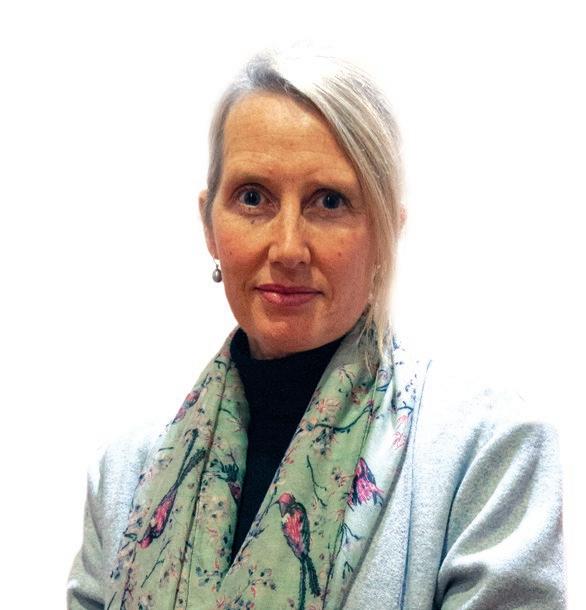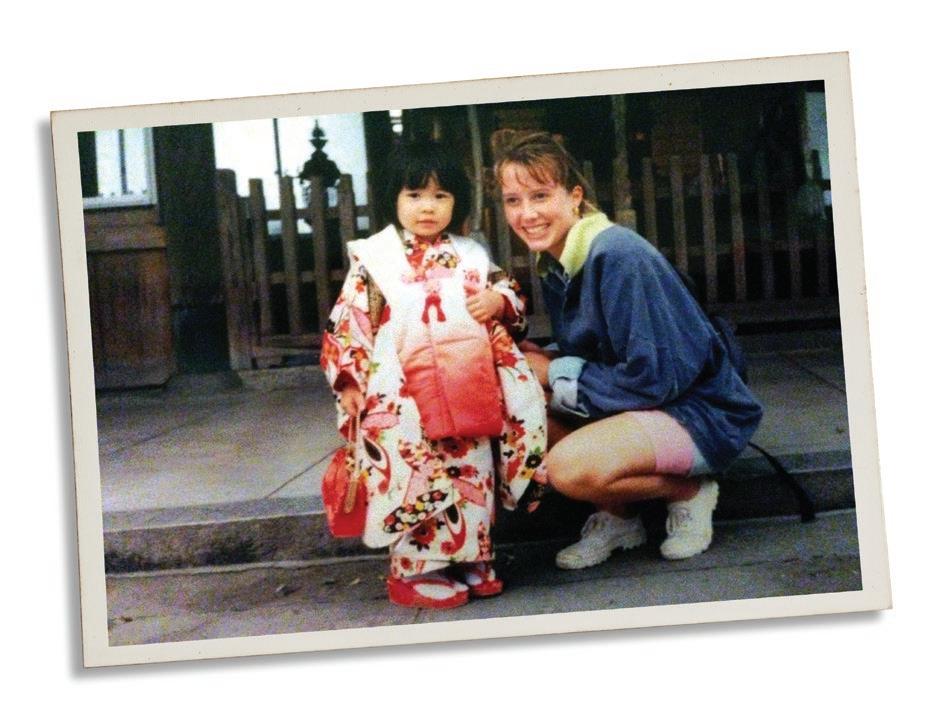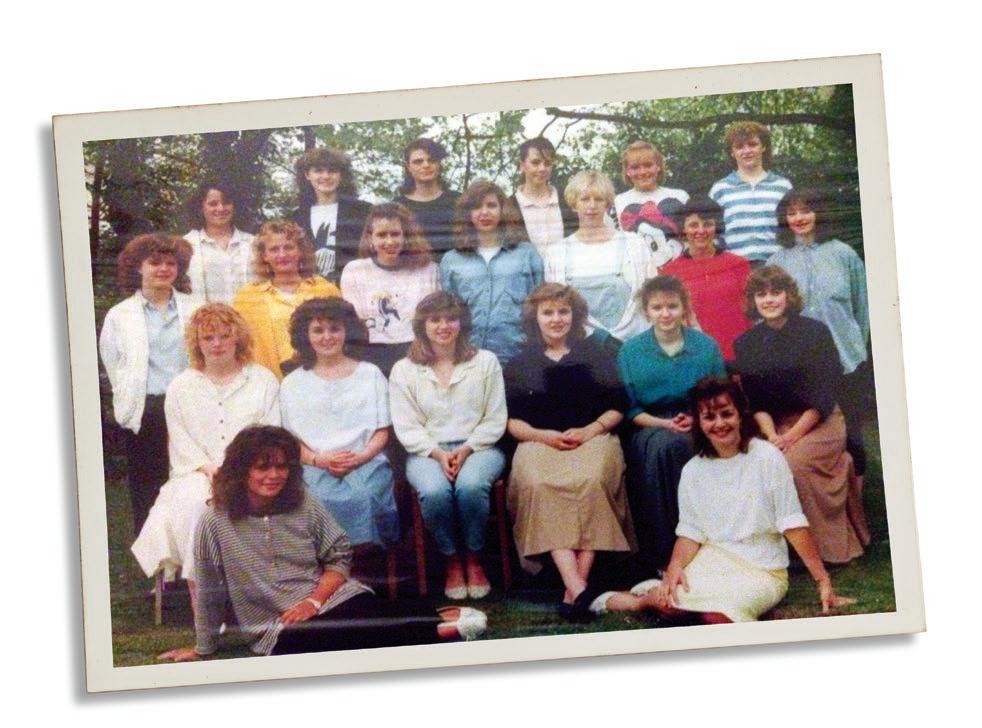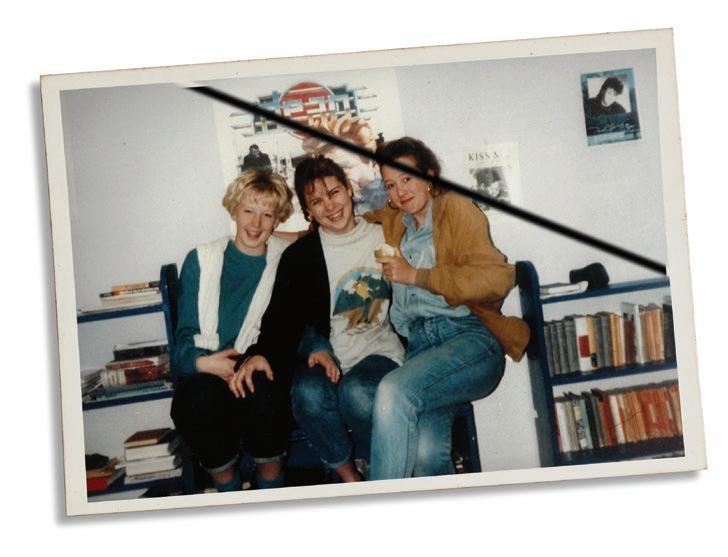
9 minute read
Inspired in Jaipur
Karin finds great inspiration in the lives of the children of Jaipur
Omnia speaks to Karin Schulte (OE 1974 – 1987) about her varied career and her passion for dance and helping the street children of Asia.
What are your fondest memories of Eothen and why? My fondest memories of school were my friends and all the experiences we shared together. I started Eothen at four years of age and stayed until 18. The majority of my friends were also at Eothen for a similar length of time, so for arguably the most formative years of my life the school and its culture had a defining impact on me. My friends were like my extended family, our parents knew each other and we still meet today, they are a wonderful grounding force.
I have fond memories of most of the teachers. Mrs Mossmann my German language teacher used to despair at my lack of interest in German grammar. I could already speak German so I didn’t see the point in learning the grammar! As I was the only student studying German A Level I got to know her very well and loved her stories about living in the Australian outback helping to manage a large cattle station.
Mrs Sykes and Miss Trehane were the unofficial school counsellors, you could go and talk to them about absolutely anything, they wouldn’t judge and gave great advice. This added so much value to my school experience and a sense of trust and honesty in teachers. Diana Raine was a standout headmistress, admittedly as a child I found her quite daunting but now I appreciate her forward thinking and encouragement to us ‘girls’ that we could do anything we wanted, she said, very clearly, ‘if you want to be an engineer, be an engineer,’ and I think she did instil that kind of attitude in me which was quite liberating. If I look among my school friends I see a similar kind of attitude and I think some of that must come from the school culture we experienced.
As for memories of Caterham it was the swimming pool. We would come for our weekly swimming lessons, it was always such a big deal to go swimming and I loved it.
Are there any particular characteristics or principles you developed at school which have guided you in your career? I think the belief that being female was not a barrier to doing what you wanted. This was the environment I was surrounded by in school and I think I carried that with me. I also consider myself fortunate that for the majority of my working career I lived and worked in Asia where being a woman did not hold me back. I was firstly seen as a ‘westerner’, the gender issue I felt, was secondary.
What has been the highlight of your career so far? I have benefited from a number of career paths since University, so perhaps my experience is a little more aligned with how the younger generation are experiencing their career journey, with four or five careers in a lifetime. I didn’t plan it like that, but I moved with opportunities which also closely aligned to my love of travel and experiencing different cultures.

Karin in Japan, 1991 The Caterham School Society 14
I particularly liked the concept of the charity trying to generate funds for itself, to become more funding self-sufficient, as well as teaching skills that would help secure employment...
When I left University I participated in the JET Programme, assisting Japanese teachers of English in Japanese schools, then I moved to Hong Kong and did a management apprenticeship in the shipping and logistics industry. After five years I moved to Australia, studied an MBA and went into investment banking. Then I moved back to Hong Kong as a private equity fund manager before going to Singapore and working in the charity sector. I returned to the UK four years ago and am now involved with projects focusing on Gen Z and Millennials, as well as non-exec director roles.
Safe to say that I enjoy a challenge, creative thinking and transferring the skills that I have picked up across the various roles. One of my career highlights is the variety I have experienced, not just due to the different countries I’ve lived in, but also the different sectors and roles I have experienced.
You recently became involved with Rambert, a dance company. Tell me a little about your love of dance and where this came from? I have a big passion for dance. At the age of four I started at the Maureen Brown School of Dance in Caterham, I was there until 16 dancing ballet, tap and modern. It was my childhood dream to become a dancer and I did ask if I could go to dance or stage school but my parents didn’t allow it, so I stayed at Eothen. I became involved with Rambert on their Development Board as I was interested in Arts organisations. Rambert are one of the UK’s oldest dance companies and are cutting edge in terms of choreography and in taking risks, so I thought it would be a great opportunity.
You have done a lot for charity, in particular helping street-connected children. Tell me a little more about this and how you first became involved? When I was working in Asia in the early 90s I spent three months managing a logistics operation in Saigon, Vietnam. Every morning I walked to the office and saw groups of children, some with severe disabilities asking for money. I learnt that they were being used by organised begging gangs, sadly often with parental consent, to target tourists for money. It didn’t take them long to work out that I wasn’t a tourist and the children never asked me for money, they would just join me on my walk to work, I’d teach them a little English and share some sweets.
Many years later I was living in Singapore I met an Australian lady who was helping to raise funds for a charity in Jaipur, India. My experience in Vietnam many years before made me want to try and do something to help. The charity in Jaipur ran a vocational training centre which taught craft and artisan skills. I particularly liked the concept of the charity trying to generate funds

for itself, to become more funding self-sufficient, as well as teaching skills that would help secure employment. The charity pay a fair wage, has high standards of training and make beautiful products. I acted as a business mentor and introduced them to a number of partners who are still their clients today and provide a solid source of income making ethical and sustainable collections sold internationally. Contrary to what some people may imagine, working with street-connected children has been an inspirational and uplifting experience for me. Visiting the children in Jaipur is always a delight, despite some of their tragic life experiences, the incredible power to turn their lives around is inspiring and puts a lot in my life into perspective.
You spent time working in the investment industry, what are your thoughts on the recent implosion of Neil Woodford’s investment empire. What lessons can be learned? I think serious governance questions need to be asked regards the Woodford Investment Management Board and the role of the Financial Conduct Authority. The issue of open ended funds investing in illiquid assets, specifically the amount that can be realistically invested in such assets and how it is reported needs review and more transparency in my opinion.
People investing in funds or shares need to educate themselves and ask lots of questions. No question is a silly question and if you aren’t getting answers to your questions, don’t invest. Investors need to take the time to read through the information and if they don’t understand it, tread with caution. It’s important to understand the risks. There is also a great need to educate students in school on how to manage their finances. Maths means nothing if you don’t know how a mortgage is calculated or if you don’t know how compound interest on a credit card is calculated and what that means for you.
I feel there is a duty in education to make students financially aware particularly as over the next 35 years there is a huge generational wealth transfer estimated at £5.5 trillion. The wealth and shareholder power they will inherit is very large. Any school that wants its students to stay ahead of the game should be educating on these topics.
What is your advice to Caterham pupils today? How should they best prepare for what might seem like a very uncertain world. I am sure that students at Caterham realise that they attend a great school with lots of opportunities.
We are living in a time of huge change, innovations such as the internet have changed how we socialise, work, shop, bank, to name but a few areas. Artificial intelligence will most likely bring another wave of rapid technological disruption. Climate change and sustainability is another driver of transformation in

Eothen Upper and Lower Sixth Forms “Such a small number of students – no suits required and heaven only knows what they put in the shampoo at the time but it certainly seemed to give some volume!”


areas such as energy resources, plastic usage, travel, farming, food consumption to name but a few.
Schools and students are faced with the challenge of being in education but not necessarily knowing the outcome, namely where students may end up working and what skills are required. Change is one theme that will be constant and to deal with change schools and pupils in my view need to ensure that the skills of resilience, adaptability and strategies to cope with change and stress are learned and practised in school. One way to do this is to not only embrace all the great opportunities that Caterham can offer for the things that you like to do, such as your favourite sports and extra curricular activities. I would challenge students, at least once a term, to do something they wouldn’t normally do, to go a little out of their comfort zone and try something different and then review how it went, this can help build confidence and help prepare students in a different way for life beyond the school walls.










